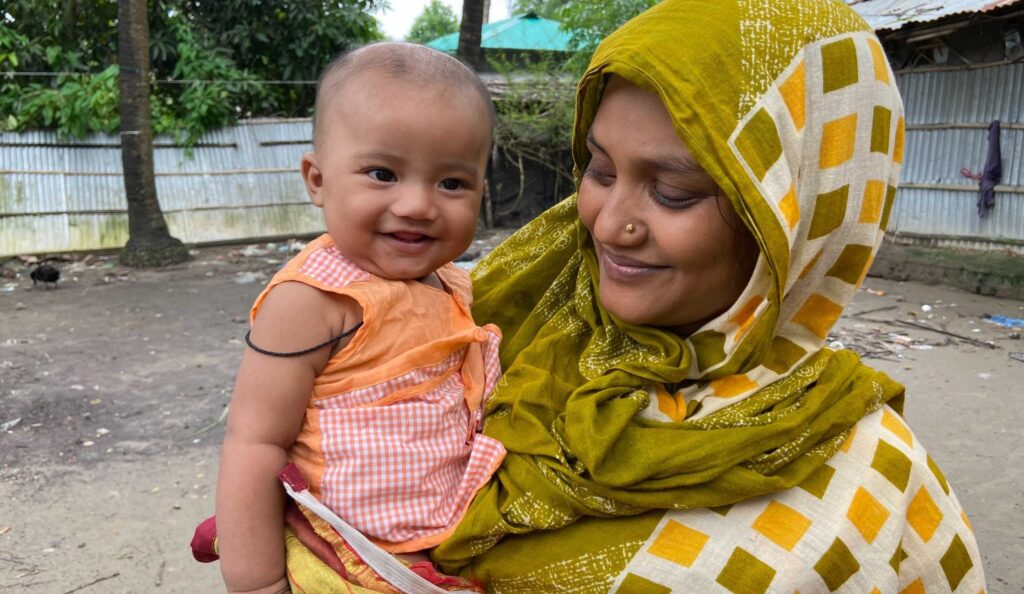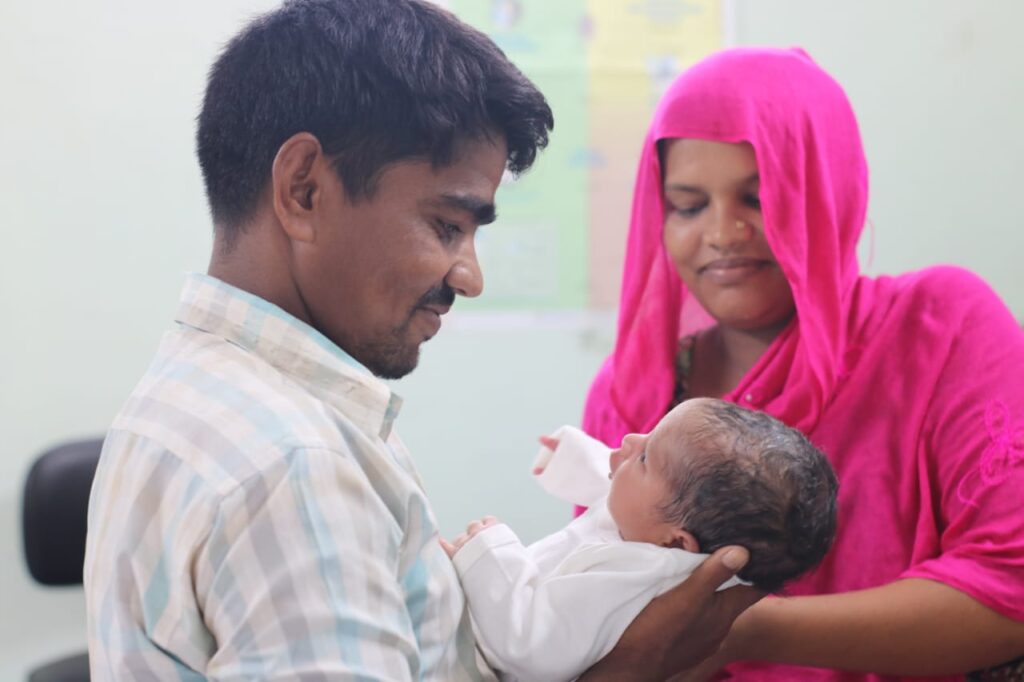Updates & Press
Featured | November 24, 2021
5 Reasons to Support Maternal Health on #GivingTue
Author | MedGlobalComms

Next week, on November 30, it will be #GivingTuesday.
Created as a global generosity movement, Giving Tuesday is the perfect opportunity to give back to your community and those around the world. This year, MedGlobal is raising essential funds to support free maternal health care for displaced women in Bangladesh, Colombia, Syria, and beyond.
We hope you will stand with us to help new and expecting mothers and their families.
Here’s 5 reasons to give to MedGlobal’s maternal health programs:
- Maternal deaths are a strong indication of a lack of access to quality health care and health disparity at large. By strengthening maternal health worldwide, we can begin to close these gaps. These deaths are defined as those which occur while pregnant or within 42 days of the end of pregnancy. According to the World Health Organization, 99% of maternal deaths occur in low- and lower-middle-income countries.
Health disparities between low- and lower-middle-income countries and higher-income countries reflect an even greater risk for young adolescents. The probability of maternal death for a 15-year-old in a low-income country is 1 out of 45. In high-income countries, it is 1 in 5,400. More than half of these deaths occur in sub-Saharan Africa and almost a third in South Asia.

- Maternal mortality can be a primary cause of death for women. In Bangladesh, maternal mortality is the third leading cause of death for women ages 15-49. Around 90% of women give birth in their homes and 36% do so without the support of a trained health worker or midwife. Although home labor does not always imply differences in care, these figures reflect a larger lack of access to health facilities and trained staff.
MedGlobal’s Maternity & Birthing Center in Cox’s Bazar is currently working to increase access to maternal health care for displaced women in the Somitipara neighborhood of Cox’s Bazar, Bangladesh. The Center, which is run by a dedicated team of midwives, provides free antenatal care and delivery services for pregnant women and offers Mother’s Clubs that serve as a safe space for women to seek counseling, support, and health education.
- The majority of maternal deaths are preventable. Poor quality care accounts for 50% of maternal deaths and 61% of neonatal deaths. The major complications which account for ¾ of maternal deaths are severe bleeding, infections, high blood pressure during pregnancy, complications from delivery, and unsafe abortions.
Providing antenatal care, births with skilled personnel, postnatal care, and care for small or sick newborns are four targets which have been identified to address these complications and save lives. These are services that virtually all women in high-income countries receive and are widely unavailable for women in low- and lower-middle-income countries. By guaranteeing these aspects of basic care, we can reduce preventable deaths and invest more time in finding solutions to complicated cases.

- Supporting the maternal health of displaced women is a critical, yet often overlooked part of humanitarian responses. Pregnant women are one of the populations most likely to experience negative health outcomes and even death throughout migration routes. Even once pregnant women arrive in a host country, they still face challenges due to lack of access to health care, interpretation services, and overall continuity of care. In Europe, migrant women were 2x as likely to die during or shortly after birth.
Many women fleeing Venezuela through the Venezuela-Colombia border face these dangers as they migrate. MedGlobal is responsible for the Comuneros Clinic in Cúcuta, Colombia, which primarily serves displaced Venezuelan women and their children. In 2020, 20% of Venezuelan migrant women who gave birth in Cúcuta were patients of the Comuneros Clinic. Many were forced to leave Venezuela due to the ongoing maternal and child health crisis in the country, where infant mortality has increased by 30% and maternal mortality has increased by 65%.
- These initiatives place the value on women’s lives that they deserve. Healthy women and healthy pregnancies have a far-reaching impact on communities and families. We can prevent and identify future health problems for women and their children by identifying existing health risks during pregnancy. These are the factors that lead to successful future generations and they are well within our reach.
Women are the primary caretakers of children and elders around the world. They are the primary advocates for education within families, business owners that form networked economic foundations for future generations, and most importantly, role models and loved ones. There are countless spaces that women fill in our lives, without which we would not be where we are today. For all these reasons, we ask that you support maternal health for displaced women around the world.


